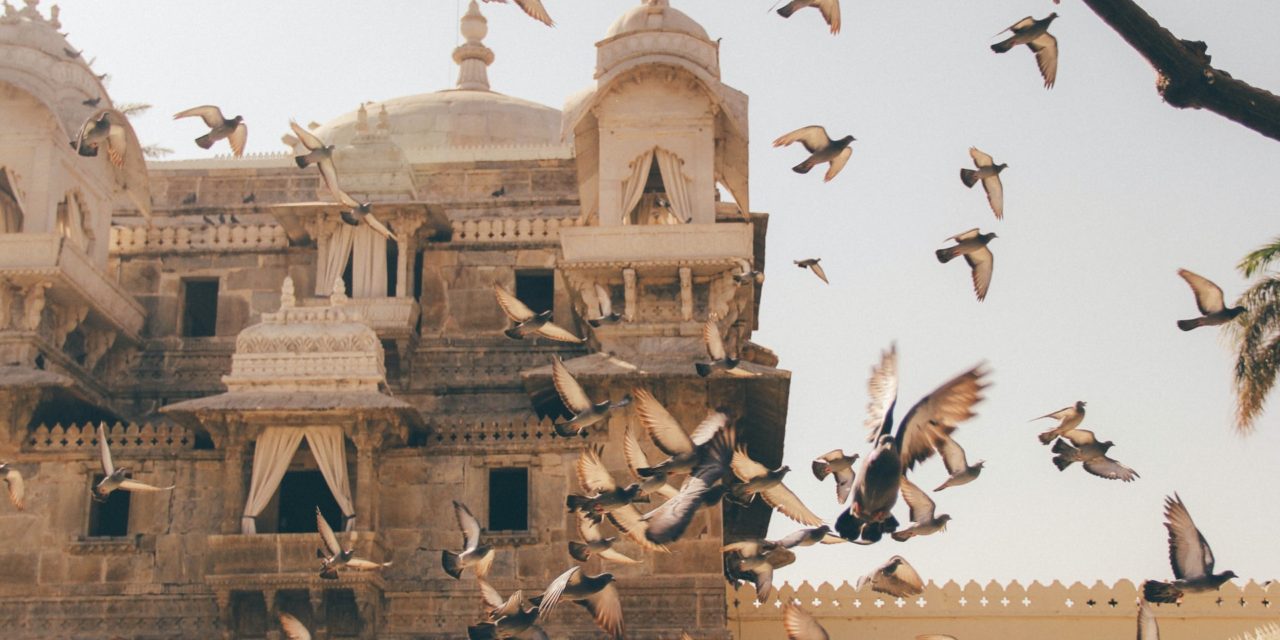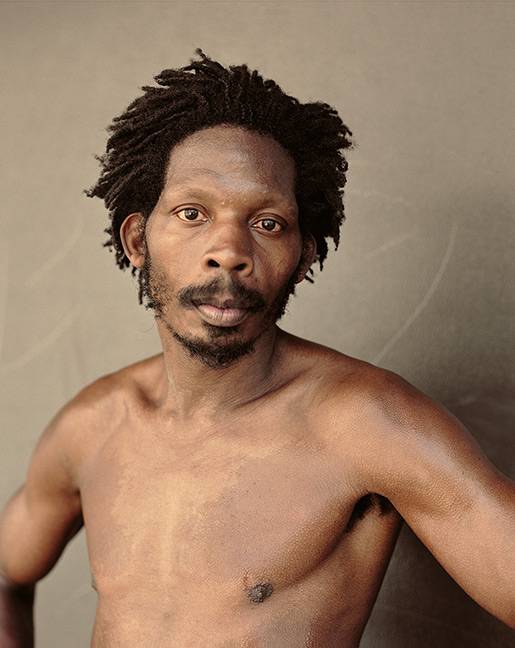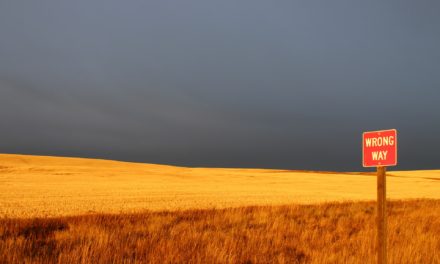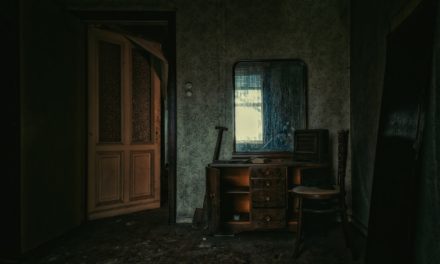The Rajdoot
by Sylvia White
By the time Ranjit and I finished the tour of the Taj Mahal, an evening chill was settling over the city of Agra. The mist rising off the Jumna river thickened the air already heavy with acrid cooking fires. We ate a few greasy pakoras at a tea stall and Ranjit dawdled over his lukewarm cup so long that I began to wonder if he really meant to take me to his uncle Bikram’s house where we were supposed to spend the night. This had been arranged in New Delhi by phone and proposed by Ranjit’s father, Mr. Singh, as the only respectable way for his unmarried son to travel and spend the night away from home with an unmarried woman. Finally, he washed his hands at the faucet outside the stall and started toward the taxi stand where he began to haggle with the drivers clustered around him like bees on a blossom. They pitched their offers and counter-offers, the drivers gently shoving their elbows into each other’s ribs to better advance their chances for one last fare of the day. The winner with the lowest bid proudly escorted us to his battered old car knowing he could extract a few more rupees at the journey’s end by claiming he took short cuts to get us there faster. Fast is a very relative term in urban India. Here a cabbie drives with one hand on the wheel and one on the horn which he pumps with tabla-like rhythm, but to no avail among the cacophony of horse-drawn carts, bicycles loaded with mountains of potato sacks, and rickshaws, all weaving in and out of the line of cars, moving at their own speed regardless of those around them.
Once out of the city center, we picked up speed on the emptier side streets. With a few directional suggestions from Ranjit, the cabbie found the barely lit address of a cement bungalow. Ranjit told me there were frequent brown-outs and so the usual glare of neon in the streets was replaced by the faint glow of candle light in the windows of each house.
Uncle Bikram was taller and thinner than Ranjit, but had his long, fine fingers. Smiling nervously, he moved towards us at the gate, puzzled by the sight of this young American woman his nephew brought to stay. I could see that the impression I made on him wasn’t good. My western clothes were not considered modest by the more conservative Indians of the provinces. While not quite a mini skirt, my dress did make my lower legs visible, my head was uncovered and I did not lower my eyes, but looked at him with the frankness we Americans project as sincerity. But since each father is responsible for his own household, the arrangement for us to stay the night that he made by phone with his brother in New Delhi was now being reconsidered. Who was she? Why was she traveling alone? Where was her husband? Ranjit translated these questions, then my answers, which did nothing to ease Uncleji’s mounting discomfort. His pale green turban and gray beard were soft but his eyes were coals unlit by welcome. I trotted out the explanation I had used upon arrival at the Singh’s: that I was a student studying Indian culture. In truth, I was one of those young westerners who traveled East either for adventure, on a spiritual quest or because so many others were doing it at the time. I hoped they wouldn’t realize that I wasn’t enrolled in any university at the time, and hadn’t the faintest idea of what Indian culture meant. I was traveling alone because I felt safe in India and no, I wasn’t married. It was clear that I remained an enigma to middle class Indians who could not fit me into their image of the usual American tourist couple who stayed at the best hotels and never drank the water. Add to that the fact that I had come overland hitchhiking in trucks instead of landing at the airport clearly placed me among a suspect class like the Gypsies. India had once been beyond my horizon. But, with some friends, I’d hitchhiked through Turkey, Iran, Afghanistan and Pakistan getting rides in trucks or taking the rare bus. In Tehran, we met a young Sikh who insisted we stay with his folks once we got to New Delhi. When we arrived, the Sikh’s younger brother, Ranjit, took us under his wing and offered to be our tour guide through the city, to take us to Agra to see the Taj Mahal. My friends already had plans for Nepal, and so I had agreed to go with him, alone.
Now Uncleji and Ranjit argued together in whispers; every few sentences glancing over at me to see if I understood what was being said. If the Hindi or Punjabi words were a mystery, the body language was clear. Uncleji, gesturing toward his house, was defending the honor of his household. Ranjit, gesturing towards me, was trying to defend the honor of his guest and his own good name as a member of the family. Finally, in English, with a smile towards me, Ranjit said “No, she’s not like the English mamsahibs, she’s American.”
Uncleji took one more sour look at me and, turning his back, led the way into the house like a dead man walking. Inside, the women of the house stood in a clot of disapproval in the entrance. A second barrage of questions erupted from Auntieji but Ranjit’s answering volley cut her off and a cease-fire was established.
By now I felt like a fart that no one would acknowledge…obviously in the room but certainly no one’s child.
We sat on hard benches in the living room lit by candles while Ranjit dispensed news of the Delhi branch of the family. The weight of the day’s events was hanging around my neck and pulling my eyelids closed. One of the young girl cousins caught me stifling a yawn and smiled sheepishly. When I smiled back, she giggled and fell over on her side, keeping eye contact, as if my sleepiness were a secret only we two shared. Her giggle broke the tension in the room and drew their attention back to me. Auntieji offered us a meal, which Ranjit declined, to their relief, and then showed me where I could pee in the outhouse and sleep alone in a small room on the second floor.
In the middle of the night I awoke as Uncleji, holding a lit candle, was taking my hand and helping me out of bed onto bare feet, insisting that I follow him. In the stupor of my half sleep I wondered if something had happened to Ranjit but when I asked him and he answered by shushing me, I knew he wasn’t thinking about his nephew. By now we were half way down the hall. I pulled my hand away, anger heating my cheeks and evaporating my sleepiness. I stumbled back to the bedroom and, unable to find anything to block the door, sat up in bed sorting my options. I didn’t know where Ranjit was sleeping or if he was secretly in on the attempted seduction. I didn’t know the city or anyone in it who could help me. I decided that if Uncleji came back I would just start yelling since noise was what he seemed to want to avoid at all costs. Armed with this paltry resolve, I eventually fell back asleep.
At breakfast it was my turn to be rude. I sat with arms crossed and answered churlishly to their offers of tea and bread. Ranjit looked at me with some surprise but didn’t press the issue. Uncleji didn’t look at me at all.
As soon as I could get Ranjit aside, I told him about the night raid. He seemed righteously offended for my sake but it was clear that he would not confront Uncleji about it. He tried to cheer me up with plans of a surprise outing, just the two of us, to see a bit of the countryside. I asked him if he was going to borrow someone’s car as he had for our tour of New Delhi. He just smiled knowingly and held up one finger to indicate that I should wait, walked down the driveway along the side of the house and disappeared around the corner into the back yard. Several minutes went by while I was debating whether to follow or wait in the front yard when I heard an engine start with an enormous roar. He returned straddling a massive motorcycle, the Indian Harley Davidson, the Rajdoot.
Black and shiny except where the dust of the road clung to its lower frame, its chrome muffler and handlebars glinting in the morning sunlight, it came toward me gliding smoothly, close to the ground. I had never been on a motorcycle before. There was room for me on a seat behind Ranjit and as I got on I felt a living, pulsing mass between my legs which promised power. I smiled for the first time that day and tentatively reached my arms around Ranjit’s soft belly. This was the most intimate I had yet been with him and he turned his head slightly to acknowledge it with a slyly smiling eye, only the corner of which I could see. His mouth may have been smiling too but the straight black hairs that hid it kept their secret.
We started out of the yard with a surge of power, the engine purring, rumbling, softly coughing. Once on the empty road he opened the throttle and the dry wind hit my face like fine grit sandpaper. A laugh bubbled up in my throat as I looked out over the flat plains of Agra. All the trees were winter bare except one. It still had a full head of light green and yellow leaves. Just as I was craning my neck to keep it in view, the Rajdoot backfired and the tree exploded. Its leaves flew off in all directions and I realized they were not leaves at all but hundreds of small wild birds, parakeets, in a frenzy of surprise.
Sylvia White has been a professional photographer, artist and teacher in the Los Angeles area for 35 years. She is currently retired in Joshua Tree, California. “The Rajdoot” is excerpt from a work-in-progress memoir and is her first published work.






